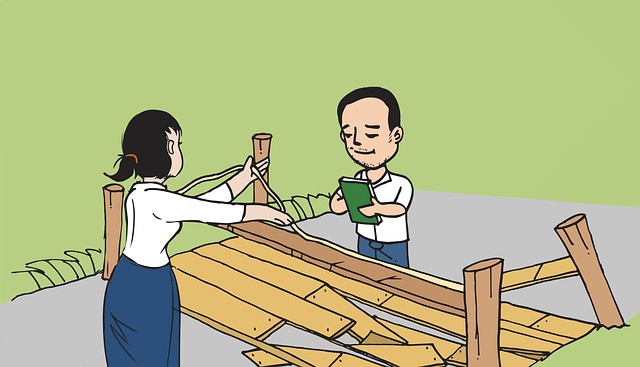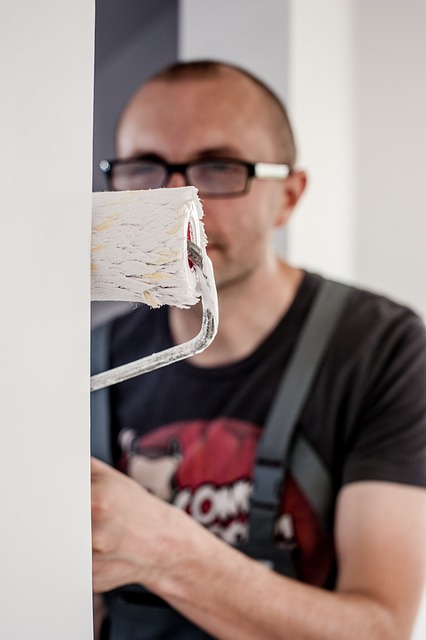🏠🌡️ HVAC systems are crucial for maintaining comfortable indoor conditions and ensuring occupant health in modern buildings. Regular maintenance by professional HVAC repair services is key to optimal system performance, energy efficiency, and longevity. Consider an upgrade if repair costs are high or your system is over ten years old, as newer HVAC models offer improved energy savings and comfort.
Modern HVAC systems come with advanced features like smart technology for remote monitoring and control, better air filtration, and longer lifespans. These upgrades are a strategic investment that can enhance property value, provide long-term financial benefits through utility cost savings, and align with sustainable living practices.
When choosing a new HVAC system, consider factors like sizing, energy efficiency, and the type of system best suited for your space—whether it's a traditional ducted system or a ductless mini-split. The decision should also take into account the potential integration of smart home technology for easier maintenance and remote management.
Selecting a competent HVAC contractor is essential, especially one with expertise in systems similar to the one you're installing. Verify their credentials, past projects, client testimonials, and adherence to local building codes. Online reviews and comprehensive service agreements that cover installation, maintenance, and repairs are valuable tools in ensuring a reliable and efficient HVAC system. Always compare quotes from different providers for the best balance of cost and quality.
When it comes to maintaining comfortable and energy-efficient environments in both residential and commercial spaces, HVAC systems play an indispensable role. This article delves into the pivotal aspect of installing new HVAC systems, offering insights on recognizing when it’s time for a replacement, the myriad benefits of modern HVAC upgrades, and the critical factors to consider during the selection process. From understanding the importance of these systems to learning about advanced technologies like smart thermostats, this guide also covers practical advice on choosing the right contractor, financing options, and maintaining your new system for optimal performance. Whether you’re weighing HVAC repair against replacement or seeking to enhance sustainability through building practices, this article equips you with comprehensive knowledge to make informed decisions and ensure a smooth transition to a more efficient and comfortable living or working space.
- Understanding the Importance of HVAC Systems in Modern Buildings
- Signs You Need a New HVAC Installation for Your Home or Business
- The Benefits of Upgrading to Modern HVAC Systems
- Factors to Consider When Choosing a New HVAC System for Residential or Commercial Use
- How to Select the Right HVAC Contractor for Your Installation Project
Understanding the Importance of HVAC Systems in Modern Buildings

modern buildings rely heavily on HVAC systems to maintain a comfortable indoor environment, ensuring occupants’ well-being and health. These systems are integral to regulating temperature, humidity, and air quality, making them indispensable in both residential and commercial spaces. The role of HVAC repair services is crucial when it comes to maintaining optimal performance; regular maintenance and timely repairs prevent minor issues from escalating into significant problems that could lead to system failure or increased energy consumption. Moreover, efficient HVAC systems contribute to overall building performance, reducing environmental impact and promoting sustainability. In the context of residential settings, a well-functioning HVAC unit means homeowners can enjoy a consistently comfortable living space year-round, while in commercial spaces, it ensures that businesses can operate under ideal conditions, enhancing productivity and customer satisfaction. As such, understanding the importance of HVAC systems and the necessity for reliable repair services is key to the longevity and functionality of any modern building.
Signs You Need a New HVAC Installation for Your Home or Business

When the repair bills for your HVAC system start to stack up, it might be time to consider a new installation. Repeated and costly HVAC repairs can be a red flag that your system is on its last legs. An aging unit, typically over 10 years old, may become less efficient, leading to higher energy bills and decreased comfort levels. If you notice that your current system requires frequent fixes and still struggles to maintain the desired temperature in your home or business, it’s a clear indication that an upgrade would be more cost-effective in the long run. Additionally, advancements in HVAC technology mean that newer systems offer improved energy efficiency, better indoor air quality, and enhanced performance, which can translate into significant savings and a more comfortable environment. It’s wise to assess the overall condition of your HVAC system regularly. Keep an eye on performance issues, such as uneven heating or cooling, strange noises during operation, or a system that cycles on and off more frequently than normal. These signs, along with consistent repair needs, can signal the need for a new HVAC installation rather than another repair job.
The Benefits of Upgrading to Modern HVAC Systems

Upgrading to modern HVAC systems offers a multitude of advantages for both residential and commercial spaces, surpassing the traditional benefits of HVAC repair. These advanced systems are designed with energy efficiency in mind, significantly reducing utility costs over time by optimizing heating and cooling performance. They incorporate cutting-edge technology that not only maintains optimal temperatures but also filters indoor air more effectively, improving overall air quality and contributing to a healthier environment. Furthermore, the integration of smart home technology allows for remote monitoring and control, enabling users to customize settings for enhanced comfort and convenience. With longer lifespans and quieter operations compared to older models, modern HVAC systems provide a reliable climate-control solution that minimizes repairs over their service life. Additionally, these upgrades can enhance the overall value of the property due to their improved functionality and energy-saving capabilities, making them an investment that pays off in both immediate comfort and long-term savings. It’s evident that the transition to modern HVAC systems is a step towards more sustainable living and working conditions. Homeowners and business owners alike stand to benefit from these advanced systems, which represent a leap forward from traditional HVAC repair solutions.
Factors to Consider When Choosing a New HVAC System for Residential or Commercial Use

When selecting a new HVAC system for residential or commercial spaces, it’s crucial to evaluate several key factors to ensure optimal performance, comfort, and energy efficiency. The size and capacity of the HVAC unit are paramount; an improperly sized system can lead to inefficiencies, reduced lifespan, and suboptimal heating or cooling performance. Consider the square footage of the space, insulation quality, window sizes, and local climate conditions to determine the appropriate size for your HVAC system. Additionally, advancements in technology have introduced a variety of energy-efficient models that can significantly reduce operating costs over time. These high-efficiency systems often come with a higher upfront cost but can offer substantial savings on energy bills, making them a wise investment in the long run.
Another significant factor is the type of HVAC system that best suits your needs. Between traditional ducted systems and ductless mini-splits, the choice depends on various aspects, including the existing infrastructure, desired zoned comfort control, and space availability. Ductless systems can be particularly beneficial in retrofitting older buildings or in spaces where ductwork would be impractical. Furthermore, the system’s compatibility with smart home technology should also be considered. Modern HVAC systems often come equipped with Wi-Fi connectivity, allowing for remote monitoring and control via smartphone apps. This feature not only enhances user convenience but also enables proactive HVAC repair and maintenance, ensuring that any issues can be addressed promptly to prevent extensive damage or costly repairs.
How to Select the Right HVAC Contractor for Your Installation Project

When embarking on a new HVAC installation project for your residential or commercial space, selecting the right HVAC contractor is paramount to ensure efficiency, reliability, and quality. Begin by researching local contractors with a strong track record in HVAC repair and installation. Look for companies that specialize in the type of system you require, whether it’s a traditional furnace and air conditioner or a more advanced geothermal heat pump. Check their credentials, including certifications from recognized industry bodies, to confirm their expertise and compliance with local regulations.
Reviewing past projects and client testimonials can provide insight into the contractor’s experience level and customer satisfaction rates. Consider asking for references and contact previous clients to discuss their experiences with the HVAC repair services provided. Additionally, assess the contractor’s reputation by looking at online reviews across various platforms to gauge their reliability and professionalism. It’s also wise to compare quotes from several contractors to ensure you receive a competitive price without compromising on quality. Ensure the contractor offers comprehensive service packages that cover the installation as well as future maintenance and HVAC repair needs, providing long-term value and peace of mind for your investment in a new system.
When it comes to maintaining comfortable and energy-efficient environments within residential or commercial spaces, upgrading to modern HVAC systems offers significant advantages over outdated models. This article has outlined the importance of HVAC systems, identified the critical signs indicating the need for new installations, and highlighted the benefits that accompany these advancements in climate control technology. Additionally, it provided key factors to consider when choosing a new system and offered guidance on selecting a reputable HVAC contractor for installation projects. As the demand for reliable and efficient heating and cooling solutions grows, homeowners and business owners alike are encouraged to prioritize HVAC repair and replacement to enhance their living or working conditions. By doing so, they not only improve indoor air quality but also potentially reduce energy costs and environmental impact. It’s clear that investing in the right HVAC system is a decision that yields both immediate and long-term benefits.
